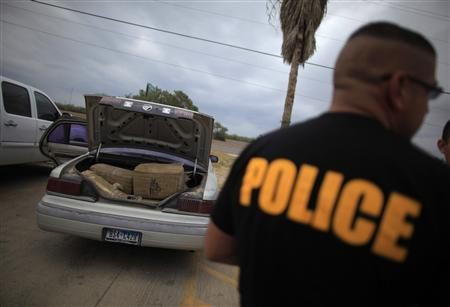
A new study from the UN Office on Drugs and Crime indicates that consumption of "new psychoactive substances" (NPS) has grown throughout Latin America and advocates for "a stronger health perspective" in the formulation of anti-drug policy. Those substances include "bath salts", the anesthetic ketamine and plant-based substances like Salvia divinorum as well as synthetic cannabinoids which produce highs similar to that of marijuana - many of them drugs which have flown under the radar of international drug-prevention efforts either because they are used in medical procedures or because lawmaking bodies have not been able to respond quickly to them, according to FOX News.
The UN's study also asserts that decriminalization measures won't solve Latin America's drug problem. "While intensified competition in trafficking in cocaine has led to growing levels of violence in Central America, the problem will not be resolved if drugs are legalized," it says. "Organized crime is highly adaptive. It will simply move to other businesses that are equally profitable and violent."
RELATED: 5 Things To Know About Bazuco, The New Drug In Bogota Streets
Latin America is still mainly a supplier. According to the report, rates of NPS use are still low compared to places like Europe, which has the world's highest concentration of users and where governments are largely moving toward health-based approaches to fighting drug use as opposed to law-enforcement ones, setting up clinics and broadening education programs. But Latin America's status as a supplier continues to ravage countries in the region, especially Central American states like Honduras, Guatemala and Mexico. In response, leaders in the region have begun to show a greater willingness to buck Washington in calling for the decriminalization of drugs.
RELATED: Two Ways For Latin American Youths To Get Rich, Says Juan Pablo Meneses: Drugs Or Sports
Earlier in June, two reports analyzing the impact of drugs on the Americas and considering alternatives to the current law-enforcement-heavy approach were the focus of debate at the general assembly of representatives from the Organization of American States in Antigua, Guatemala. One of the reports argued that decriminalization of drugs use "needs to be considered as a core element in any public health strategy. An addict is a chronically sick person who should not be punished for his or her dependence, but rather treated appropriately."
RELATED: Vigilante Militias Act As Police In Provincial Mexico; Government Plans To Crack Down
The United States, which has remained steadfast in its opposition to decriminalization, was said to have been troubled by such signs of openness to a shift in policy. But Latin American leaders have shown themselves bolder than ever before in challenging the United States' position. Guatemalan President Otto Pérez Molina - a conservative who provoked surprise among many when he came out in early 2012 in support of legalizing all commonly used narcotics -- called the OAS rep-orts a "triumph." Colombian President Juan Manuel Santos, a close U.S. ally in the region, has also called for discussion on legalization. Other parts of Latin America have taken concrete steps. Mexico's capital may soon allow people to grow marijuana at home, smoke it in designated clubs and carry up to 25 grams. Across Uruguay, personal use of marijuana is permitted, and the legislature is currently debating ways to further legalize and regulate sale of the drug.
© 2025 Latin Times. All rights reserved. Do not reproduce without permission.




